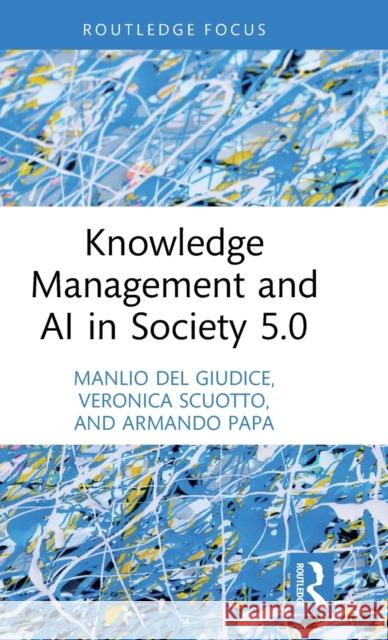Knowledge Management and AI in Society 5.0 » książka
Knowledge Management and AI in Society 5.0
ISBN-13: 9781032191911 / Angielski / Twarda / 2023 / 96 str.
Society 5.0 points toward a human-centred approach by the use of modern, advanced technologies and artificial intelligence. This book explores and offers an overview of knowledge management embraced in the current scenario of Society 5.0, shedding light on its importance in a society that is increasingly digital and interconnected. The book enhances current managerial and economic research by offering the “human” side of knowledge management (KM) intertwined with the use of artificial intelligences (AIs). Each chapter explores KM from different perspectives, including entrepreneurship, innovation, marketing, and strategy, in a theoretical and practical way. They include insights from both practitioners and scholars, enriched by practical tools that can be used during laboratories, workshops and tutorials. The book presents evidence on how to manage KM and develop new knowledge in different subjects, with the aim of overcoming conventional KM strategy and show how business and society are connected with “power of subjective human knowledge creation”. Offering both new insights, research and practical guidance, this book will appeal to academics and students of knowledge management as well as digital transformation practitioners looking for ways to transition their organizations from knowledge economy to digital economy.
Society 5.0 points toward a human-centred approach by the use of modern, advanced technologies and artificial intelligence. This book explores and offers an overview of knowledge management embraced in the current scenario of Society 5.0, shedding light on its importance in a society that is increasingly digital and interconnected.
The book enhances current managerial and economic research by offering the “human” side of knowledge management (KM) intertwined with the use of artificial intelligences (AIs). Each chapter explores KM from different perspectives, including entrepreneurship, innovation, marketing, and strategy, in a theoretical and practical way. They include insights from both practitioners and scholars, enriched by practical tools that can be used during laboratories, workshops and tutorials. The book presents evidence on how to manage KM and develop new knowledge in different subjects, with the aim of overcoming conventional KM strategy and show how business and society are connected with “power of subjective human knowledge creation”.
Offering both new insights, research and practical guidance, this book will appeal to academics and students of knowledge management as well as digital transformation practitioners looking for ways to transition their organizations from knowledge economy to digital economy.











